Best Practices for Home Viewings in Burnaby

Best Practices for Home Viewings in Burnaby
Understanding the Importance of a Well-Planned Viewing
When it comes to selling your home in Burnaby, a well-executed viewing can make all the difference. With an active and often competitive market, potential buyers are not just looking at the structure and features of your home—they’re experiencing it. That means presentation, timing, and emotional appeal all play key roles in helping your property stand out.
Why Presentation Matters in a Competitive Market
In Burnaby, buyers have options. With everything from high-rise condos in Metrotown to charming bungalows in Deer Lake and modern townhomes in Brentwood, buyers are comparing your listing to several others in a short span of time. A polished, well-presented home signals that the property is well cared for—and potentially move-in ready.
Homes that are clean, staged, and thoughtfully prepared tend to:
- Attract more interest
- Sell faster
- Receive higher offers
In many cases, presentation is the tipping point between an offer and a pass.
The Power of First Impressions
The first few minutes of a home viewing set the tone for the entire experience. Whether it’s the smell of fresh air, the shine of hardwood floors, or the gentle lighting in a welcoming entryway—these details speak volumes before a word is even said.
Burnaby buyers, especially young professionals and families, tend to be visually driven. They want to see themselves living in the space. That’s why thoughtful staging, decluttering, and curb appeal are essential. From the moment the front door opens, your goal is to spark an emotional connection and make it easy for visitors to picture the home as theirs.
Preparing Your Home for Viewing
Once you understand the value of presentation, the next step is to get your home showing-ready. Preparing your home for a viewing is more than just tidying up—it’s about creating a clean, spacious, and neutral environment that allows buyers to focus on the home’s potential, not its current occupants. This preparation stage often determines whether your home feels like a place buyers could see themselves living in—or just another stop on their tour.
Declutter and Deep Clean
Clutter is distracting. It makes rooms feel smaller and can prevent buyers from noticing key features of your home. Decluttering allows your space to breathe and helps buyers focus on the home itself—not your personal belongings.
Start by prioritizing high-impact areas:
- Kitchens: Clear counters of small appliances, store away dish racks, and organize pantries and drawers. A clean, spacious kitchen is a major selling point.
- Bathrooms: Remove personal items like toothbrushes, razors, and cosmetics. Keep towels neatly folded and surfaces sparkling.
- Closets: Buyers will look inside, so aim for 50% empty space to suggest ample storage. Box up out-of-season clothes and unnecessary items.
Once clutter is removed, it’s time for a deep clean. Every surface should shine—from baseboards to window sills. Don’t forget:
- Walls and light switches
- Inside appliances (yes, buyers often peek inside the fridge or oven)
- Windows, mirrors, and glass doors
Professional vs. DIY Cleaning
If you have the time and energy, deep cleaning yourself can be cost-effective. However, a professional cleaner can save hours of work and deliver consistent results—especially important if your schedule is tight or the home hasn’t had a thorough clean in a while.
Consider hiring a professional if:
- You’re preparing for a weekend full of viewings or an open house
- Your home has pet hair, lingering odors, or carpet stains
- You’re juggling other move-out or prep tasks
Whether you clean yourself or hire out, the goal remains the same: make your home feel fresh, hygienic, and move-in ready. A spotless space helps build trust with potential buyers from the moment they walk through the door.
Stage Your Home for Burnaby Buyers
Staging is the art of helping buyers imagine the lifestyle your home can offer. In Burnaby’s diverse market, you’re likely to attract a range of buyers—from young professionals working in tech or downtown Vancouver, to growing families, and older adults looking to downsize. Effective staging tailors the space to appeal to all three.
Appealing to Families, Professionals, and Downsizers
- Families will look for open, functional layouts with space to gather. A cozy family room, a well-staged child’s bedroom, or a backyard play area can make a big impression.
- Professionals tend to value modern, uncluttered designs and work-from-home flexibility. Consider staging a small home office or tech nook in a quiet corner.
- Downsizers want simplicity and comfort. Focus on making the home feel low-maintenance and move-in ready, with minimal clutter and easy-to-navigate spaces.
Furniture Layout and Neutral Color Schemes The right layout opens up the space and encourages easy flow from room to room. Remove bulky or unnecessary pieces that shrink the visual footprint, and float furniture away from walls where possible to define purpose in each area.
Stick to a neutral color palette—soft grays, creams, and taupes. These shades create a calm, inviting atmosphere and appeal to the broadest range of buyers.
Maximize Natural Light
Good lighting sells homes—especially in Burnaby, where weather can vary throughout the year. Natural light makes spaces feel larger, cleaner, and more cheerful.
Use of Mirrors and Curtain Strategies
- Hang mirrors opposite windows to reflect light and make the room feel bigger.
- Swap out heavy drapes for sheer curtains, or remove them entirely before viewings.
- Clean windows inside and out to maximize brightness.
Ideal Times for Viewings Based on Burnaby Sunlight
- Schedule showings mid-morning to early afternoon when natural light is at its best—especially in fall and winter when days are shorter.
- South-facing rooms shine during these hours, so time viewings accordingly to show them at their brightest.
Handle Repairs and Maintenance
Even minor flaws can cause buyers to question how well the home has been maintained. Handling small repairs before showings can build trust and prevent distractions.
Pre-Showing Checklist
- Fix squeaky doors and drawers
- Patch and touch up wall cracks or nail holes
- Replace burned-out lightbulbs
- Repair leaky faucets and running toilets
- Touch up chipped paint on walls and trim
- Check that all appliances are clean and functional
These quick fixes can make a significant difference in how your home is perceived—potentially translating to faster offers and fewer negotiations.
Curb Appeal and Exterior Details
The outside of your home sets the tone for the entire viewing experience. In fact, many buyers form their first impression of a property before they even step inside. That’s why strong curb appeal is essential—especially in a city like Burnaby, where neighborhoods are well-maintained and buyers expect the same from potential homes.
Boost Outdoor First Impressions
Your landscaping and entryway should communicate that the home is cared for and welcoming. You don’t need to go overboard—simple, seasonal upkeep tailored to Burnaby’s West Coast climate goes a long way.
Landscaping Tips for Burnaby’s Climate
- Keep the lawn neatly trimmed and edges clean
- Remove fallen leaves, branches, or any moss buildup (especially in shaded areas)
- Add hardy potted plants or flower baskets suited to Burnaby’s temperate, rainy climate—think boxwoods, hostas, or pansies for pops of color
- Prune shrubs and trees to open up views and walkways
Front Porch, Walkway, and Door Presentation
- Power wash walkways and front steps to remove grime and mildew
- Repaint or clean the front door—this is a key focal point
- Add a new welcome mat and consider subtle decor like a seasonal wreath
- Ensure outdoor lighting is functional and clean for evening showings
These small details create a positive emotional response before buyers even enter the home.
Parking and Accessibility
Practical access to the property can have a big impact on the viewing experience. If buyers struggle to find parking or navigate the entry, it can create frustration that lingers throughout the showing.
Where Buyers Can Park During Viewings
- If your home has a driveway, leave it clear for the buyer
- For street parking, move your own vehicles to ensure availability
- If your home is in a townhouse or condo complex, provide clear visitor parking instructions to your agent or in the listing notes
Highlighting Easy Access or Mobility-Friendly Features
- Make sure pathways are clear of ice, leaves, or obstacles
- If you have a ramp, wide doors, or level entry, highlight these features—they’re increasingly important for multigenerational buyers and seniors
- Ensure the entry is well-lit and easy to navigate, especially for evening viewings in fall or winter
A smooth, stress-free arrival sets the stage for a positive experience inside.
During the Viewing: Seller Best Practices
Once your home is cleaned, staged, and ready to show, it's important to consider what happens during the actual viewing. While the agent takes the lead in guiding potential buyers, your actions—or absence—can significantly affect how the home is perceived.
Should Sellers Stay or Leave?
One of the most common questions sellers ask is whether they should remain in the home during showings. While there’s no hard rule, the general advice is simple: leave the space to the buyers.
Pros of Leaving:
- Buyers feel more relaxed and free to explore the home
- Reduces awkwardness and pressure during the visit
- Gives agents more flexibility to guide conversations and answer questions honestly
Cons of Staying:
- Can create tension or make buyers feel rushed
- Limits open conversation and prevents buyers from discussing concerns in real time
- May lead to oversharing personal details that could weaken your negotiation position
Unless there's a unique reason to stay, stepping out during the showing is typically best.
Set the Right Mood
Creating the right atmosphere can make your home feel more welcoming and memorable. Subtle touches go a long way in elevating the buyer’s experience.
Lighting Tips:
- Turn on all lights—even during the day—to make the home feel bright and warm
- Replace dim or flickering bulbs with soft white lighting for consistency
Music Tips:
- If your system allows, play soft background music—instrumental or light acoustic works best
- Keep volume low to ensure it’s unobtrusive
Scent Tips:
- Avoid strong candles or artificial air fresheners
- Opt for mild, clean scents like citrus, vanilla, or a light essential oil diffuser
- Air out the home beforehand to eliminate any lingering odors from cooking or pets
What to Do With Pets and Kids:
- Take pets out during the showing, or board them temporarily if possible—barking dogs or litter boxes can be a major turn-off
- If children are home, ensure they’re occupied and quiet, or better yet, arrange for them to be out during viewings
These thoughtful details help buyers focus on the home—not distractions.
Secure Valuables and Personal Items
Buyers and agents are strangers walking through your space, so it’s smart to safeguard anything private or valuable before the doors open.
Practical Tips to Protect Privacy and Belongings:
- Lock away or remove small valuables: jewelry, watches, electronics, and prescription medication
- Store personal documents, bills, or anything with identifying information
- Put away family photos, awards, and other personalized items to maintain privacy and help buyers visualize themselves in the home
A good rule of thumb: if you’d be uncomfortable losing it or sharing it, put it away before the showing.
Burnaby-Specific Viewing Etiquette
Local Buyer Expectations
Burnaby's diverse population includes families, professionals, and retirees, each with unique priorities. A growing emphasis on sustainability means many buyers are particularly interested in energy-efficient features and walkable neighborhoods.
Common Questions from Burnaby Buyers:
- Energy Efficiency: What upgrades have been made to improve the home's energy performance? Are there energy-efficient windows, doors, or appliances?
- Heating and Cooling Systems: What type of heating and cooling systems are in place, and how efficient are they?
- Ventilation: Does the home have a heat recovery ventilation system to ensure good air quality?
- Walkability: How close is the property to public transit, schools, parks, and essential services? Proximity to amenities is a significant factor for many buyers.
Highlighting Energy-Efficient Features:
Showcasing energy-efficient elements can make your home more appealing. Features like upgraded insulation, modern HVAC systems, and energy-efficient appliances not only reduce utility costs but also contribute to a smaller environmental footprint.
Schedule with Market Trends
Timing your home viewings to align with Burnaby's real estate market trends can enhance visibility and attract serious buyers.
Best Times and Days for Viewings:
- Spring and Early Summer: These seasons often see increased buyer activity, making them ideal for scheduling viewings.
- Weekends: Saturdays and Sundays are popular for open houses, accommodating buyers' typical work schedules.
- Evenings: Weekday evening slots can also be effective, especially during longer daylight hours, allowing buyers to view the home in natural light.
Tips for Buyers Attending Home Viewings
Attending a home viewing in Burnaby is more than just walking through a property—it’s your opportunity to assess, ask, and imagine. The better prepared you are, the easier it is to compare homes and make informed decisions.
What to Bring
Come equipped to engage with the property fully. Even if you're just "browsing," these essentials can make a big difference:
- Notebook or phone for notes – Track your impressions, questions, and ratings for each home you visit
- Tape measure – Useful for checking if your furniture will fit, especially in tighter condo spaces
- Flashlight – Helps inspect dimly lit areas like basements, attics, or under-sink cabinets
Optional but helpful:
- Home viewing checklist (print or digital)
- Camera (if allowed) to document specific areas for reference later
What to Observe
Photos can be flattering—sometimes too flattering. In person, be sure to look beyond the surface.
Key Things to Watch For:
- Condition of walls, ceilings, and floors – Look for cracks, stains, or sagging
- Smells – Mustiness or strong air fresheners can hint at underlying issues
- Windows and doors – Do they open smoothly? Is there condensation or draftiness?
- Plumbing fixtures – Check for leaks or slow drains in sinks, tubs, and toilets
- Storage – Open closets, cabinets, and pantries to assess actual usable space
Take your time—rushing through a viewing can cause you to miss important red flags.
Questions to Ask the Listing Agent
A home viewing is also a chance to get deeper insights. Ask the listing agent questions that go beyond the brochure.
Smart Questions Include:
- Why are the owners selling?
- How long has the property been on the market?
- Have there been any recent renovations or repairs?
- Are there any known issues with the home?
- What’s included in the sale (appliances, fixtures, etc.)?
- Have there been any offers made?
- What’s the neighborhood like in terms of noise, traffic, and safety?
Getting honest, detailed answers helps you make a better decision and may inform your negotiation strategy later.
After the Viewing: What’s Next?
What happens after a showing is just as important as the walkthrough itself. Whether you’re the seller or the buyer, following up effectively can keep momentum going—or give you space to reconsider.
For Sellers
If you’re selling, don’t just hope for an offer—create a process for collecting feedback and staying engaged.
How to Follow Up:
- Check in with your agent for feedback from the buyer’s agent
- Ask specific questions: What did the buyers like? What held them back?
- Update your agent on any comments so you can adjust your presentation if needed
Gathering and Applying Feedback
- If multiple buyers mention the same issue (e.g., “felt dark,” “not enough storage”), that’s a clue it’s worth fixing or staging differently
- Use feedback to refine future showings—tweak lighting, rearrange furniture, clarify unclear listing details
Showing your responsiveness as a seller can leave a good impression—and may even convert a “maybe” into a “yes.”
After the Viewing: What’s Next?
Whether you’re selling or buying a home in Burnaby, the steps you take immediately after a viewing are key. This is the moment when impressions are fresh—and follow-up decisions can either move the process forward or lead to missed opportunities.
For Sellers
After each viewing, your job isn’t over. Effective follow-up and feedback analysis can provide valuable insights that help your home sell faster and for a better price.
How to Follow Up
- Stay in close contact with your real estate agent. They should touch base with the buyer’s agent within 24–48 hours to ask about initial impressions.
- Encourage detailed feedback. Rather than a simple “they liked it” or “not interested,” dig deeper. What specifically stood out? What didn’t work for them?
- Be prompt but professional. Avoid trying to chase down buyers directly. Instead, let your agent handle follow-up communication to keep the process smooth and respectful.
Gathering and Applying Feedback
- Look for patterns. If several viewers comment that a room feels dark or the layout is confusing, those are areas to improve.
- Take action. You might need to update staging, adjust lighting, or clarify something in the listing description.
- Stay open-minded. Feedback—even when it’s critical—can be the key to a quicker sale. View it as useful input, not personal criticism.
Responding to feedback shows buyers you're motivated and proactive, which can help keep your listing top-of-mind.
For Buyers
Once you’ve toured one or more homes, take time to reflect while the experience is still fresh. Proper review and organization will help you make smart, confident decisions.
Reviewing and Comparing Homes
- Rate each home. Immediately after each showing, score the property on key criteria like location, condition, layout, and “feel.”
- Compare your top contenders. Weigh the pros and cons side-by-side. Does one offer better value? More space? A better commute?
Organizing Notes and Impressions
- Use a simple spreadsheet or checklist. Log details like price, square footage, must-have features, and potential concerns.
- Include emotional reactions. Did the home feel right? Could you imagine your life there? These impressions are just as important as facts.
- Take photos (if permitted). Visual reminders help when homes start to blend together in your memory.
The more organized you are, the easier it is to spot the home that truly fits your needs—and act quickly if it’s a hot listing.
Common Mistakes to Avoid
Even with great preparation and planning, a few missteps can quickly derail the success of a home viewing—whether you’re the seller or the buyer. Being aware of these common mistakes ahead of time can help you stay on track and make the most of the experience.
Seller Mistakes
Overpersonalization
It’s natural to want your home to reflect your personality—but during a viewing, that can work against you. Buyers need to picture themselves living in the space, not feel like they’re visiting someone else’s house.
What to avoid:
- Bold wall colors, niche décor, or themed rooms
- Family photos, name plaques, and overly personal items
- Collections or hobby gear (e.g., action figures, sports memorabilia)
Tip: Stick to neutral, universal design choices and remove personal touches. The more “blank slate” your home feels, the easier it is for buyers to imagine moving in.
Ignoring Small Fixes
Minor issues can signal bigger problems to buyers. A squeaky door, chipped paint, or dripping faucet might seem harmless—but they can raise doubts about the home’s upkeep.
Commonly overlooked repairs:
- Loose handles or cabinet doors
- Burned-out bulbs or flickering lights
- Cracked tiles or dirty grout
Tip: Walk through your home as if you were the buyer and make a list of anything that looks worn or out of place. Small repairs often have a big impact.
Buyer Mistakes
Making Rushed Decisions
It’s easy to get caught up in the excitement—especially in a competitive market like Burnaby. But rushing into an offer without proper evaluation can lead to buyer’s remorse.
Signs of a rushed decision:
- You’re ignoring red flags just to secure a property
- You haven’t had time to compare with other homes
- You’re reacting emotionally to pressure or competition
Tip: Take a step back. Sleep on it if needed, review your notes, and discuss the decision with your agent or family. If it’s the right home, it will still feel right in the morning.
Skipping Proper Inspections
A home may look perfect on the surface, but skipping an inspection is a gamble—especially in older Burnaby homes that may have hidden issues.
Potential hidden problems:
- Outdated electrical systems
- Foundation cracks or moisture intrusion
- Roofing or plumbing issues
Tip: Always schedule a professional inspection before finalizing a purchase. It’s a relatively small investment that could save you thousands down the road.
Working With a Real Estate Professional
While it’s possible to manage home viewings on your own, working with a knowledgeable real estate professional—especially one who specializes in Burnaby—can make the entire process smoother, faster, and more profitable. From staging advice to pricing strategy and negotiation support, a good agent is your guide every step of the way.
Why Local Expertise Matters
Burnaby is a diverse city with distinct neighborhoods, buyer profiles, and price trends. A real estate professional with local market expertise can help you make strategic decisions that align with current demand.
Benefits of working with a Burnaby-based agent:
- Neighborhood knowledge: Whether it’s Brentwood, Metrotown, or The Heights, a local agent knows which areas are trending and what buyers are looking for in each.
- Buyer behavior insights: They understand what appeals to different buyer groups—first-time buyers, upsizers, downsizers—and tailor strategies accordingly.
- Pricing accuracy: Local agents know how to price competitively based on comparable listings and recent sales data.
- Connection to local professionals: From home stagers and photographers to inspectors and contractors, a local agent brings a trusted network.
Simply put, having someone who understands Burnaby’s unique real estate landscape gives you a clear advantage.
Choosing the Right Realtor
Not all agents are the same. Choosing the right one can be the difference between a seamless, successful transaction—and a frustrating experience.
What to Ask When Interviewing an Agent:
- How many homes have you sold in Burnaby specifically?
- What’s your approach to preparing a home for viewing?
- Can you provide references or testimonials from recent clients?
- How do you market listings and handle showings?
- What’s your communication style and availability like?
Red Flags to Watch Out For:
- Lack of local knowledge or vague answers about the Burnaby market
- Overpromising on price with little data to back it up
- Poor communication or long response times
- No clear marketing plan or weak online presence
A good real estate agent will make you feel informed, confident, and supported throughout the process. Trust your gut—if someone seems disorganized or uninterested in your goals, keep looking.
Conclusion
Key Takeaways
Whether you’re buying or selling a home in Burnaby, the home viewing process is a pivotal stage that requires careful planning and attention to detail. With the right strategy, strong timing, and effective presentation, you can create a lasting impression that drives results.
For sellers, understanding the local market and staging your home appropriately can give you a competitive edge. Simple upgrades, thoughtful design choices, and professional guidance go a long way in helping your home stand out.
For buyers, attending viewings well-prepared—with questions, tools, and a critical eye—can make the difference between a good decision and a regretful one. Observing the little details and asking the right questions allows you to evaluate each property with clarity.
Burnaby’s dynamic real estate market rewards those who are informed, prepared, and proactive. Whether you’re listing or looking, success starts with the viewing.
FAQs
How long does a typical home viewing in Burnaby last?
Most home viewings last between 15 to 30 minutes, though it can vary depending on the size of the property and buyer interest. For larger homes or highly competitive listings, buyers may spend more time assessing details or asking follow-up questions.
Should I remove all personal photos before a viewing?
Yes. Removing personal photos helps create a more neutral space where buyers can imagine themselves living. It also helps protect your privacy during showings.
What if it rains on the day of the showing?
Rainy days are common in Burnaby, especially in fall and winter. Ensure your entryway is clean and dry, provide a mat for shoes or umbrellas, and make the interior as warm and welcoming as possible with lighting and scent.
Can I request a second viewing as a buyer?
Absolutely. In fact, it’s encouraged—especially if you’re seriously considering making an offer. A second viewing gives you the chance to look more closely and evaluate things you may have missed the first time.
Is video home viewing common in Burnaby?
Yes. With the rise of remote buyers and convenience-focused selling, many listings offer video tours or virtual walk-throughs. While helpful, they don’t replace the experience of an in-person visit, so schedule a live showing if possible.
Categories
Recent Posts
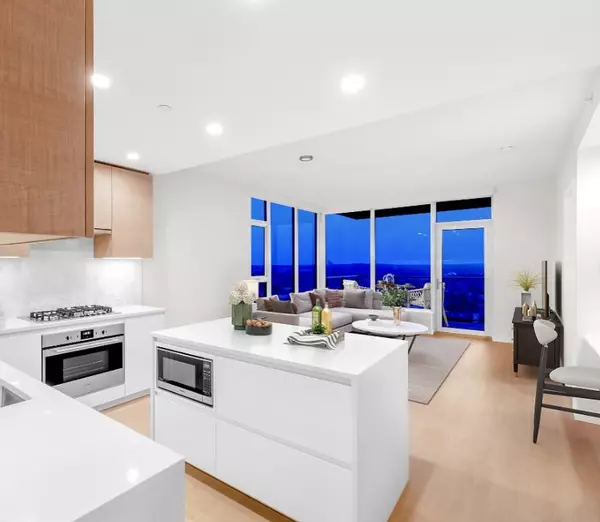
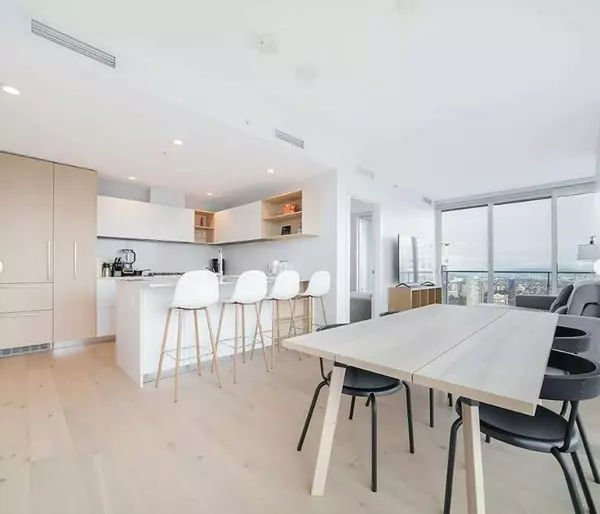
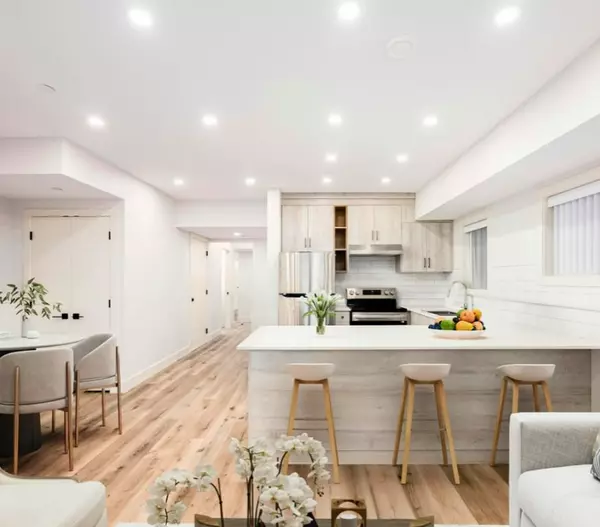
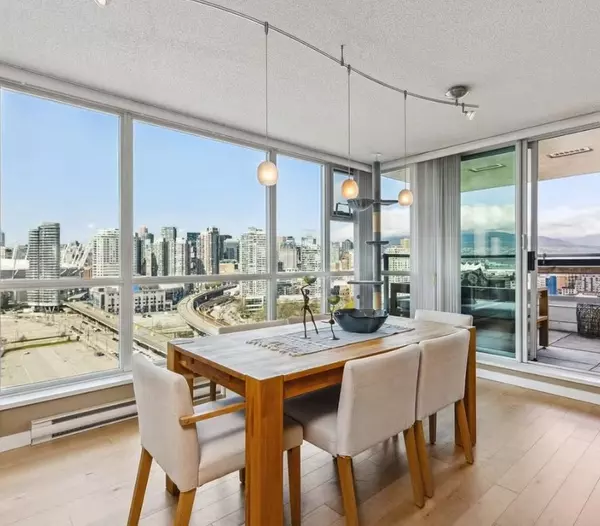
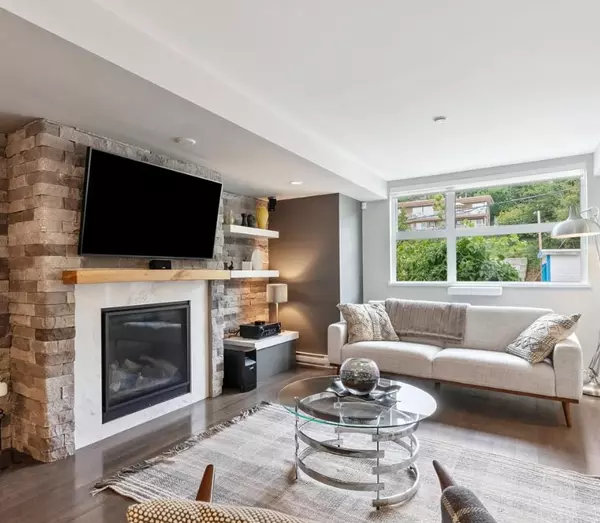
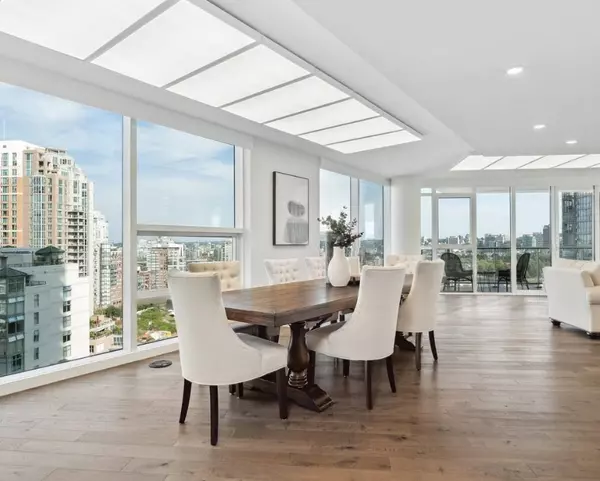
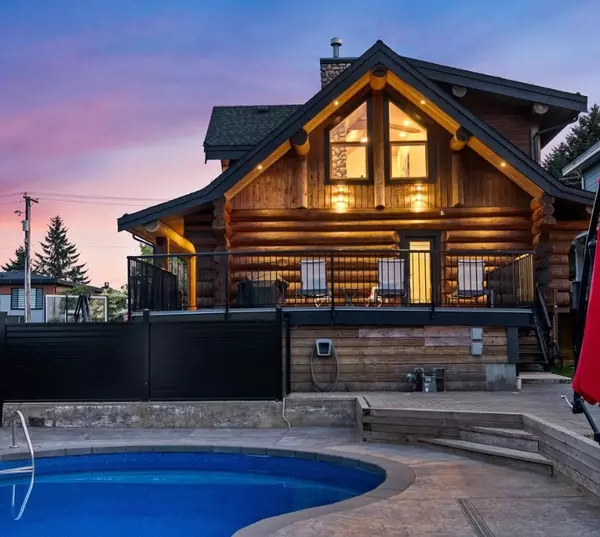


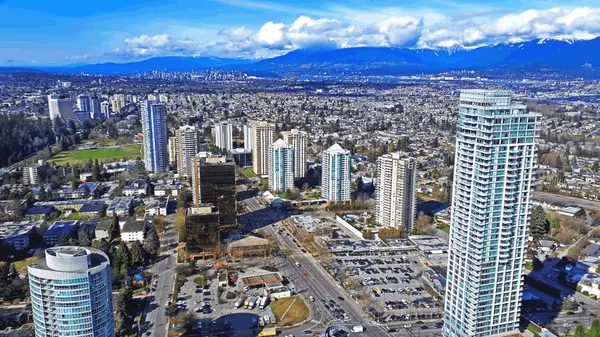

"My job is to find and attract mastery-based agents to the office, protect the culture, and make sure everyone is happy! "
